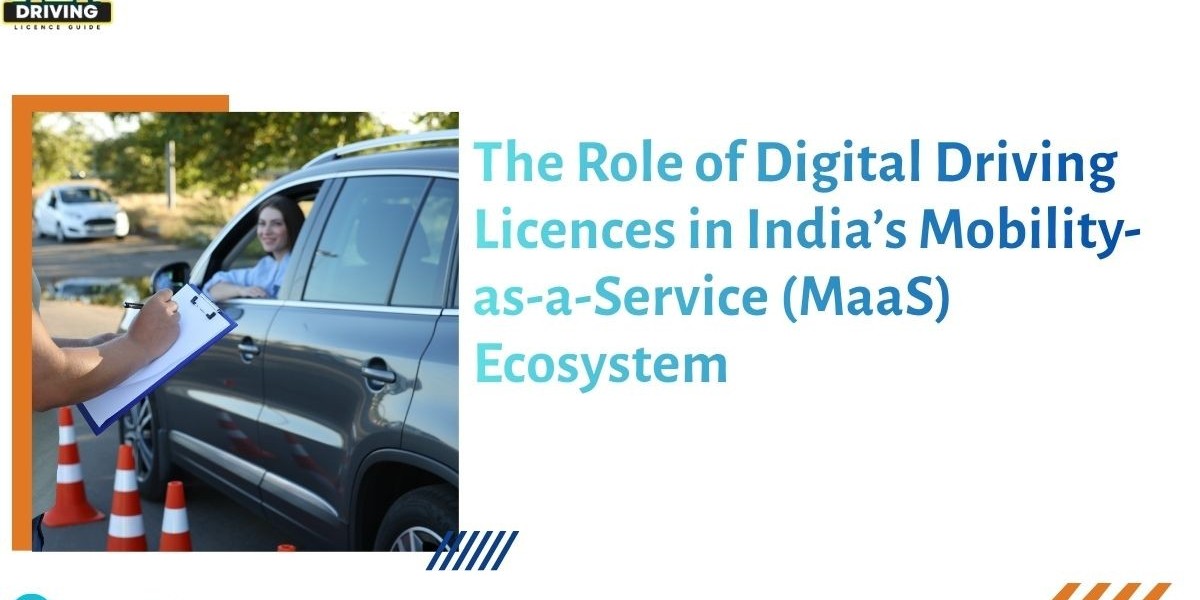In this blog, we will explain how digital driving licences are transforming India’s transport systems and playing a major role in the growing Mobility-as-a-Service (MaaS) ecosystem. As cities become smarter and transportation gets more connected, the way people commute is changing fast. Instead of owning private cars or bikes, more Indians are shifting toward shared mobility — using app-based taxis, electric scooter rentals, subscription cars, and public transport integration through mobile apps.
Behind this massive transformation lies one crucial need — authentic identity verification. Ensuring that every driver or rider is legally authorized to operate a vehicle is vital for safety, compliance, and public trust. This is where digital driving licences step in as game changers.
For any transport-related business, these licences not only simplify verification but also support automation, fraud prevention, and sustainability. They bridge the gap between people, technology, and regulation — making modern transport smoother, safer, and more transparent.
Understanding Mobility-as-a-Service (MaaS)
Mobility-as-a-Service (MaaS) refers to the integration of multiple transport options — such as buses, metros, taxis, and shared scooters — into a single digital platform that lets users plan, book, and pay for journeys easily. Instead of managing different transport apps and fare systems, MaaS brings everything together under one digital ecosystem.
The idea is simple — travel should be as easy as streaming music. Users pay for access, not ownership. Whether it’s a single trip, a monthly plan, or a pay-per-use model, MaaS ensures convenience and flexibility.
But this connected system also demands trust. To ensure that only licensed, trained, and verified drivers are operating vehicles, transport platforms need a reliable way to validate identity and legal status. That’s where digital driving licences fit perfectly.
How Digital Driving Licences Fit into MaaS
Digital driving licences — available via DigiLocker, mobile wallets, or authorized government apps — are secure, authenticated, and legally valid versions of physical licences. In a MaaS ecosystem, they can serve as a digital key for both identification and authorization.
Here’s how they play a crucial role:
- Instant Identity Verification
Digital licences allow instant verification of drivers through QR codes or digital databases, saving time during registration or onboarding.
- Fraud Detection and Prevention
Since these licences are stored and verified digitally, the chances of fake or expired documents being used are minimized.
- Automated Driver Onboarding
Gig drivers, delivery agents, or car rental partners can be verified automatically, speeding up workforce hiring and compliance checks.
- Data Integration and Insights
Verified licence data can be linked with trip records, vehicle usage, and performance analytics to improve operational efficiency and safety.
- Seamless User Experience
For ride-hailing or car-sharing users, the same digital licence can serve as proof of eligibility across multiple platforms — no need for repeated uploads or manual checks.
Benefits for Businesses
For transport operators, fleet management companies, and shared mobility startups, adopting digital licence verification offers multiple business advantages:
- Regulatory Compliance Made Simple
With digital licence data linked to official government databases, businesses can ensure they’re meeting all legal and safety standards automatically. - Enhanced Safety and Accountability
Only verified drivers get access to vehicles, reducing risks of accidents and liability issues. - Reduced Paperwork and Manual Processes
Automation minimizes human errors and delays, freeing teams to focus on growth and customer service. - Cost Efficiency and Scalability
Digital workflows cut administrative costs and make it easier to scale operations across multiple cities. - Stronger Customer Trust
When users know that every driver on the platform is verified and licensed, it builds confidence and boosts long-term loyalty.
Challenges in Adoption
Even though digital driving licences offer clear benefits, full-scale adoption faces some challenges:
- Data Privacy Concerns:
Storing and accessing driver data digitally raises privacy and cybersecurity concerns that businesses must address with strong encryption and access controls. - Infrastructure Gaps:
Smaller operators or rural service providers may lack digital tools or reliable internet access for real-time verification. - Awareness and Training:
Many drivers are still unaware that digital licences hold the same legal validity as physical ones. Educating the workforce is essential. - Standardization Across Platforms:
Different MaaS apps use different formats and verification systems. A unified national standard would improve interoperability and trust.
How Digital Licences Contribute to Sustainable and Smart Mobility
Digital licence systems don’t just improve compliance — they actively support India’s sustainability and smart city missions.
- Paperless Systems: Eliminating manual paperwork saves thousands of printed documents every year.
- Energy Efficiency: Automated verification reduces the need for in-person checks, saving fuel and time.
- Data Transparency: Digitized driver records help city planners understand traffic behavior and design safer, greener infrastructure.
- Accident Reduction: Verified and trained drivers lower the risk of road mishaps, promoting safer urban mobility.
Conclusion
As India continues its journey toward smart and connected mobility, digital driving licences are becoming the backbone of safe, transparent, and efficient transport systems. They make driver verification seamless, reduce fraud, and enhance accountability for both individuals and businesses.
For MaaS platforms, integrating these licences is no longer optional — it’s essential for compliance, user safety, and operational excellence. Businesses that adopt digital licence verification early will be the ones leading India’s next mobility revolution.
Note: To stay updated with driving licence verification processes, digital integration, and transport compliance tips, visit https://drivinglicencehelp.com/ .



